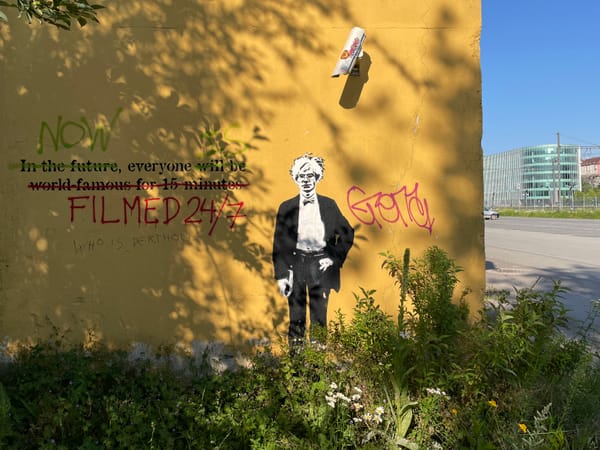The psychological effects of authoritarianism
How living under authoritarianism affects the mind.

Welcome to the Madness newsletter—where I cover politics, tech and science with a dose of history. If you’re not subscribed yet, you can join here. Free and paid options available.
When we think about authoritarianism, the primary emotion that comes to mind is most likely fear. The authoritarian seems to have limitless power, total awareness and an addiction to revenge. If you haven't lived under an authoritarian regime, then you probably have gathered this based on what you've seen in documentaries or read in books. But what's it like to live it? How does it affect the mind?
Authoritarians do indeed live off of fear, but there's more to it than that. Living under authoritarianism is stressful. It makes you paranoid. It strips some of your identity away from you. It can be debilitating. There are numerous ways in which authoritarianism can creep into one's thoughts throughout the day.
"Authoritarians try to divide and conquer the population that they want to dominate," Kim Lane Scheppele, a professor of sociology at Princeton University, tells me. "They do this by threatening vulnerable parts of the population—bringing the awesome power of the state against them. Fear is important in the process of consolidating power because it disables the opposition."
Scheppele says that people's fears can cause them to self-censor, and they may become less likely to organize politically. People don't want to put themselves in the spotlight when that might mean that their freedom could be taken away from them—or worse. She says some simply "withdraw from politics" entirely. Others might become more motivated to fight back. Reactions vary.

"If there is no focal point of leadership to unite those who are affected by authoritarianism in a common mobilization, these different reactions divide the population and make it easier for an autocrat to rule," Scheppele says.
Michele Gelfand, a professor of organizational behavior and psychology at Stanford University, tells me that people often become more willing to accept "strict rules and punishments" in exchange for "perceived safety" when democracy starts to erode and authoritarianism takes hold.
"When authoritarian leaders amplify threats—whether real or manufactured—citizens experience heightened anxiety that makes them crave social order and strong leadership," Gelfand says. "This is an evolutionary impulse—as we have shown that when threats are real, having strict rules can help groups coordinate to respond to threats."
Authoritarian leaders often manipulate perceived threats to gain support, Gelfand says. They can do things to make threats feel more real or exacerbate them. Her research has found that the appeal of authoritarianism isn't about specific personalities but about "deeper cultural fault lines between tight and loose societies."
"The threat-tightness dynamic is evolutionary and universal—it will persist regardless of individual leaders," Gelfand says. "This means addressing authoritarianism requires tackling both real threats, like economic displacement from AI and globalization, and manufactured ones, like exaggerated immigration fears."
Gelfand says the solution isn't just removing authoritarian leaders. Ultimately, it's about building resilient institutions that can address legitimate fears while maintaining democracy. If those fears can be addressed adequately, citizens will be less likely to be manipulated by a would-be authoritarian.
"Some of us have focused mostly on what happens when democracy is crushed by focusing on the institutions—the visible manifestations of dictatorship and the laws that have enabled authoritarian capture—but there is a subjective side to the collapse of democracy as well," Scheppele says.
Authoritarianism isn't just an attack on democracy but an attack on the citizens themselves. It's a form of psychic terrorism. It infects everything it touches and leaves an indelible mark. Perhaps if we can better understand this, we'll be better able to fight back against it. If we can clearly see what's being done to the populace and what the people need to be pulled away from their desire to seek security by any means necessary, then a movement to defeat authoritarianism may be possible.






